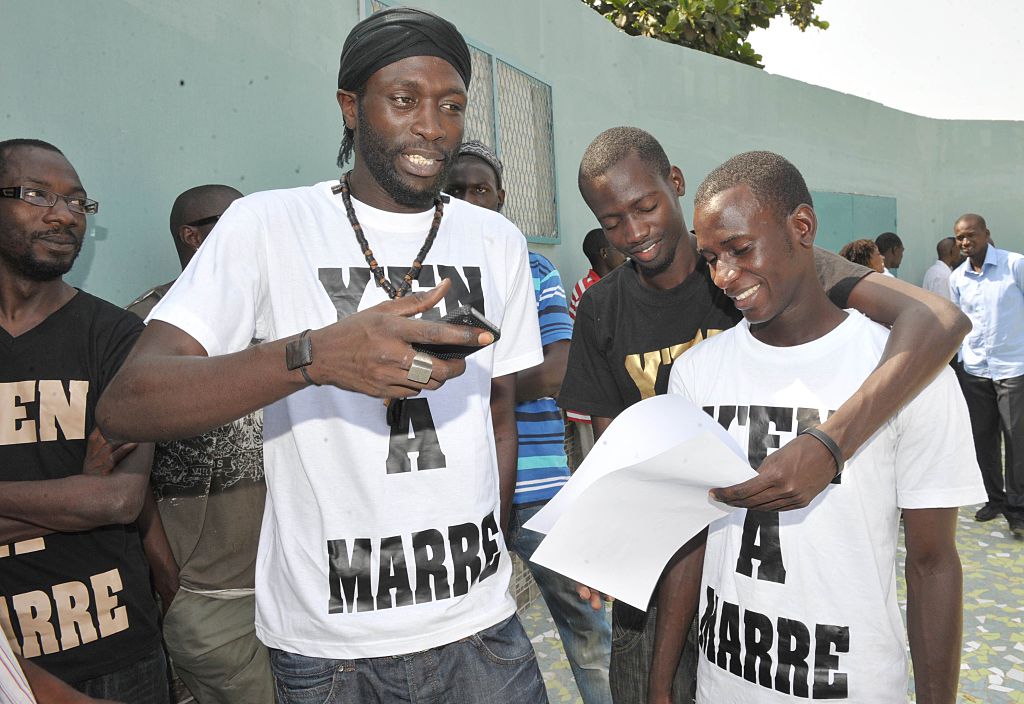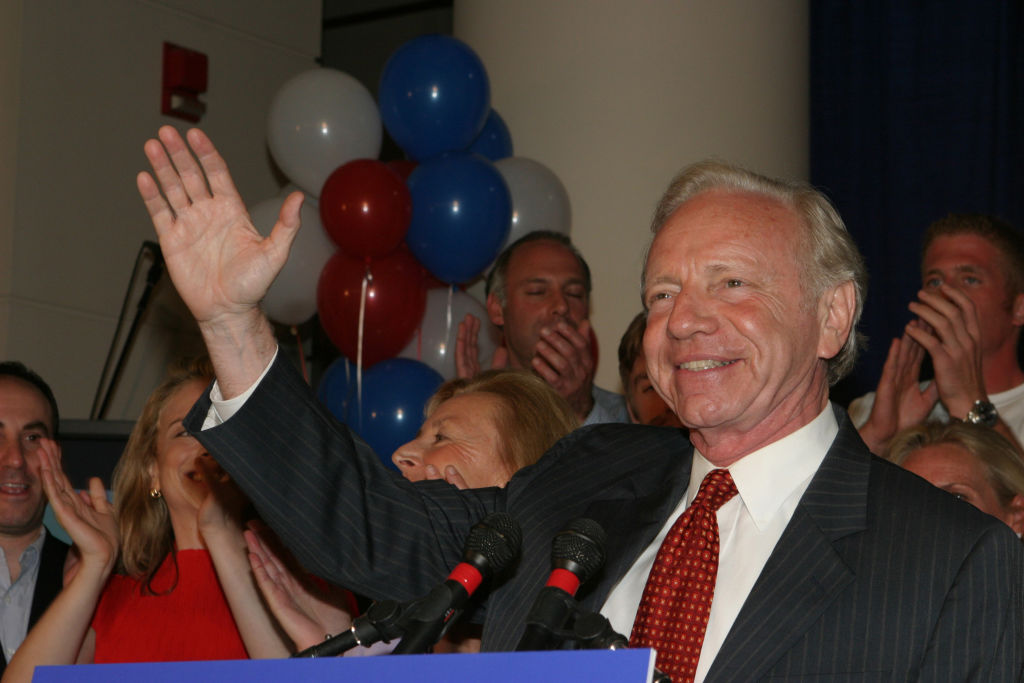Your Daily Phil: Israel-based giving platform targets millennials + New grants from William Davidson Foundation
Good Thursday morning!
The William Davidson Foundation is making two new grants totaling $8.5 million to the Jewish Federation of Metropolitan Detroit and the Israel Museum, eJewishPhilanthropy has learned.
The Detroit-based foundation announced the grants, made in honor of William Davidson’s brother-in-law and sister, Byron and Dorothy Gerson, shortly after the announcement of grants earlier this month to the Detroit Institute of Arts and the Detroit Symphony Orchestra.
The grants are “truly a reflection of both family and foundation priorities,” Ralph Gerson, the foundation’s director and treasurer and the son of Byron and Dorothy Gerson, said. Dorothy died in April 2021 at age 99.
The couple, the foundation said, were longtime supporters of the Detroit federation, which will receive $3.5 million to create the Byron and Dorothy Gerson Centennial Innovation Fund. Following the announcement of the $5 million gift to the Israel Museum, the Temporary Exhibitions Gallery in the museum’s archaeology wing will be renamed the Byron and Dorothy Gerson Gallery.
PERSONALIZED GIVING
My Tzedakah brings customization and accessibility to giving


Courtesy
What do Jewish nonprofits need most to ensure their own stability and to develop their next generation of donors? To pay closer attention to how millennials give, and to encourage deeper connections between charities and nonprofits through technology and customization, according to Carly Friedman, the Jerusalem-based founder of MyTzedakah.com, a giving platform designed with younger generations in mind, eJewishPhilanthropy’s Esther Kustanowitz reports.
‘Fully personal’: The My Tzedakah platform is fully customizable and nonprofits can be sorted by category — Jewish identity, special needs, women’s organizations, health organizations and others — that will help donors easily select a portfolio of causes for giving. The average donor gives about $180 to about six or seven charities, Friedman said. “There’s no minimum, there’s no maximum, it’s supposed to be fully personal,” she said.
Communicate effectively with donors: “Nonprofits don’t have a lot of resources to be focusing on micro-donations and micro-givers,” Friedman said. “But my generation, the next generation, millennials, Gen Z, we’re the future of the Jewish community. And I think it’s time for Jewish nonprofits to start trying to communicate effectively with this generation.”
Transformative experience: The custom of giving away 10% of income to charity should be transformative, she said. “We all need to be thinking of ourselves as philanthropists…we’re budgeting and we’re thinking about our finances. We need to be just as serious about the money that we’re keeping for ourselves and our family as we are about the money that we are giving away […] That’s really the essential reason why I built this platform; we want everyone to feel like their giving is the most transformative experience for them.”
YOUNG ACTIVISTS
Investing in a democratic future means investing in youth


SEYLLOU/AFP via Getty Images
“From the massive youth protests demanding climate action during COP26, the global climate summit in November, to the young leaders demanding action on civil rights during last month’s Summit for Democracy, it is crystal clear that a wave of youth activism and youth movements is reshaping the global agenda,” writes Shari Turitz, vice president for programs at American Jewish World Service (AJWS), in an opinion piece for eJewishPhilanthropy.
What we’re doing: “To shape the future, we believe that we must bolster movements of young people with a democratic, inclusive and just vision for a better tomorrow. Each year, AJWS supports more than 500 organizations across 18 countries. Since 2018, we have made over 900 grants globally to youth activists who are training and organizing groups of young people facing systematic and brutal suppression. And we have seen the power of what young people can achieve when given the support to organize, share their voices and mobilize others.”
Promise comes with challenges: “While this work holds tremendous promise, it also comes with challenges. We have learned from our grantmaking that youth leaders can have difficulty breaking into mainstream movements, and their leadership can be sidelined. And while the energy and commitment of young people is unmatched and they are often willing to take tremendous risks to make change, those risks can lead to early burnout or even the need to abandon movements in the face of tremendous repression.”
Worthy Reads
Reaching the Stranger: In The New York Times, Rabbi Charlie Cytron-Walker, who was held hostage with several congregants at his Colleyville, Texas, synagogue last month, suggests that groups and individuals reach beyond their communities to form relationships with those from other backgrounds. “We know that not everyone will meet us here now, but neither can we step away from the work. All of us have a share in it. It means clergy and community leaders from every background meeting with curiosity, to share our traditions and our lives. It means gathering communities of faith together with those who don’t practice a religion, with a desire to listen, learn and the opportunity to build new relationships. This isn’t just theoretical. In Colleyville and the surrounding area, more than 20 groups already meet to do this work under the umbrella Peace Together. We began gathering after Charlottesville as a mass effort to build relationships.” [NYTimes]
Power shift: A charitable-giving tax credit could shift the balance of philanthropic power away from the wealthy, writeAndrew Hayashi and Justin Hopkins in The Chronicle of Philanthropy: “A credit like this has the same value to taxpayers regardless of their tax bracket, thereby eliminating a subsidy for charitable giving that favors the rich. And by subsidizing the giving of low- and middle-income taxpayers who do not itemize, the credit would help ensure that the nonprofit world reflects the priorities of a broad swath of citizens… A tax credit is certainly not a panacea for creating greater economic opportunity, improving civic engagement, or combating the politics of division. But it may be able to reorient the nonprofit world toward the interests of low- and middle-income households, help invigorate community involvement and relationship building, and draw more people into political and civic life. That would certainly be a start.”[ChronicleofPhilanthropy]
Retaining donors: Organizations looking to retain donors should look to the reasons donors give, Otis Fulton and Katrina VanHuss write in NonProfitPro. “There is no secret formula for converting first-time donors to a second gift, let alone sustaining givers. But it is really important for nonprofits to focus on how they go about making it happen. The psychology of it is complex. It requires an equally sophisticated strategy for nonprofits to become more successful. The resources and positioning of your particular organization makes a difference. What is happening in the world makes a difference. How a donor comes into the conversation makes a difference. What supporters experience between the first and second donation is critical. It is like the chasm over the canyon of lifetime value. Invest your money, your energy and your time in figuring out how to get as many donors as you can on the other side — making a second donation.” [NonProfitPro]
Community Comms
Apply! Want to join the team at Jewish Insider/eJewish Philanthropy? We’re looking for a top-notch philanthropy editor. Learn more here.
Be featured: Email us to inform the eJP readership of your upcoming event, job opening, or other communication.
Word on the Street
Susan Seely has joined NA’AMAT USA as the group’s national executive director…
Joshua W. Rednik has been appointed chief executive officer of American Friends of the Hebrew University. Beth A. McCoy, who served AFHU for nearly two decades, will become CEO emerita…
The 2022 Israel Prize in the field of entrepreneurship and technological innovation will be awarded to Technion — Israel Institute of Technology professor Yoram Palti for helping develop a groundbreaking treatment to fight various types of cancers using electric pulses…
Enterprise Community Partners, with $8.5 million in grants from the Wells Fargo Foundation, launched a new initiative to help churches, synagogues and other places of worship turn their unused spaces into affordable housing. The money is aimed at converting underutilized land into affordable homes and community facilities.…
Pew Charitable Trusts announced grants totaling $7.7 million in support of five Philadelphia-area nonprofit organizations…
The Andrew W. Mellon Foundation awarded a $5 million grant in support of the Williamsburg Bray School Project, an initiative spearheaded by the Colonial Williamsburg Foundation and William & Mary…
Pic of the Day


Courtesy
Israeli ‘David Squad’ and Egyptian teenagers Halel Ashoosh, 16 (left), and Aly El Rafie, 17, teamed up on Wednesday to play doubles at the Kigali International Junior Open J4 tennis tournament in Kigali, Rwanda. A victory in the match put them in the semifinals of the International Tennis Federation clay court doubles tournament, where they were defeated this morning.
Birthdays


Bill Tompkins/Getty Images
Former attorney general of Connecticut (1983-1989), U.S. senator (1989-2013), Democratic nominee for VPOTUS in the 2000 U.S. presidential election, Sen. Joe Lieberman turns 80 today…








